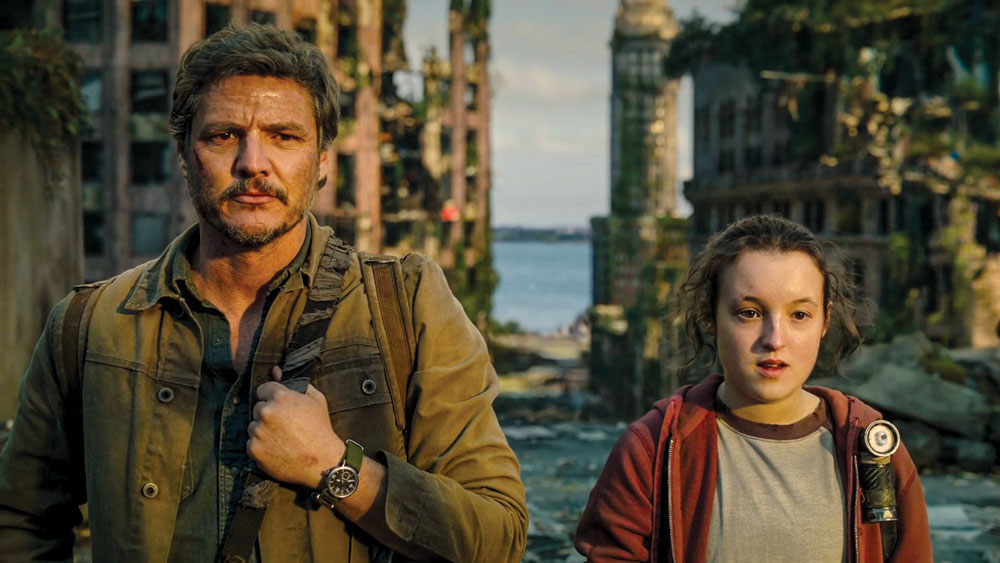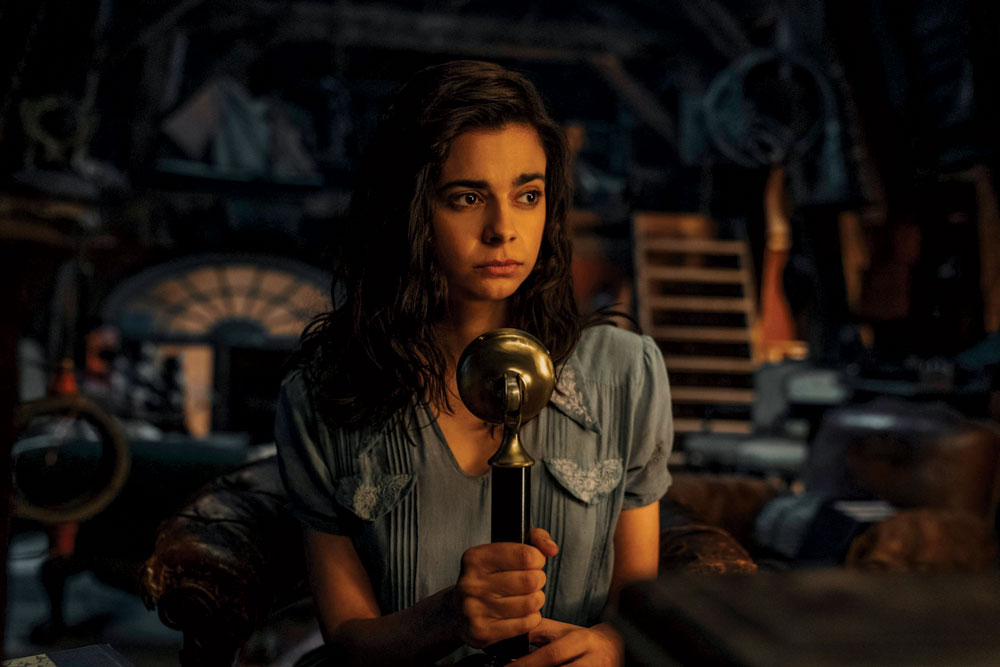
I tried. I tried to find some lighter summer viewing, but alas, I came back to two of the better productions I’ve seen this year. We end up this month on a lighter note, sort of, with a book review from a guest writer.
The Last of Us (2023)
Are we ready for pandemic media? Some say it is too soon, but this recent HBO production gives us just that, albeit couched in a different guise. Based on a video game of the same name, The Last of Us tells the story of a post-pandemic America where civilization has disintegrated after a fungal infection—which turns its victims into zombies—wipes out most of the population. The survivors live in a quarantine zone policed by a government organization near Boston, and their iron-fist rule has birthed opposition inside and outside the walls. Light summer viewing this is not.

The Last of Us
The story centers around hardened survivor Joel (the gritty and wonderful Pedro Pascal), who is tasked with transporting a young girl, Ellie (a pugnacious Bella Ramsey) “out West” for reasons not quite clear to everyone; she is evidently the key to unlock a cure. We get all of this backstory in the first episode, and then, the game is afoot. The game takes us on a ride across an American wasteland and through storylines that mostly end in, well, you’ll see. The first comparison I can think of for many of the episodes is Game of Thrones, but even that is unsatisfactory. Yes, you should be ready for the violence, the twists, and the general ugliness. Funny how a pandemic can bring out the worst in us.
The episodes range from tense to horrific to sublime. A psychopathic leader of the Kansas City faction kills with impunity in one episode; a hungry religious group (led by a sadistic preacher) searches for food in the dead of winter; a commune in Wyoming tries to recreate society in a Wild West/gated community. The most heart-breaking, glorious, and tender episode concerns an older gay couple who find safety in a secure neighborhood. They carve out a quiet life for themselves amidst a decaying world. Their story is the very definition of bittersweet. Just don’t get too attached to any of the characters.
Aside from the thinly veiled allegory for the recent, real-life referent, the show wins on multiple levels. The stories are dense and multilayered, the acting is excellent, the filmmaking is expert, and the world-building is convincing. Zombie apocalypse films/shows may have seemed distant to us in the past, but this one feels closer. Real. Tangible. Visceral. Perhaps it is recent events, or perhaps our imaginations have expanded the bounds of our normal “what-ifs.” Either way, the events are scary tunnels of light. Perhaps our societal move toward that light is progressing. And that sticks.
You will enjoy this if you liked The Walking Dead, The Road, and/or Snowpiercer.
Available on HBO.
All The Beauty and Bloodshed (2023)
The life of Nan Goldin is a fascinating one. The subversive photographer has spun an interesting web in her life—from underground denizen in the 70s, to the front lines of AIDS activism in the 80s, to organizing opposition to the Sackler family (of Purdue Pharma) in the last decade, Goldin has fought the good, tough fights in her life. This illuminating documentary tells her whole painful, personal story, from the formative childhood event of her sister’s suicide to her own bout with domestic abuse that landed her in the hospital and began her painkiller addiction. On the other side of it, she formed an activist group to hold the Sackler family accountable. She finds some success in the morass of venality that is the Sackler family.
The life of activism comes with costs, and she is by no means a perfect human. She admits as such, and she is honest—in addition to being very brave—about her travails. But she is a survivor, and she wishes that others may survive as well. The documentary structure and the narrative therein highlight this milieu, and director Laura Poitras crushes a diamond here. It’s an interesting journey and a documentary that shines.
You will like this if you enjoyed A House Made of Splinters, Dolores, and/or Till.
Available on Amazon Prime Video.
And a book review from
my daughter, budding
20-year-old literature critic Margaret Piturro, who goes to CU Boulder:
All the Light We Cannot See

All the Light We Cannot See
Anthony Derr does a masterful job of incorporating history with mystery and all manners of love. The 2014 novel follows two young people whose teen years coincide with World War II. Werner Pfenning, a German boy recruited into the military by Nazi leadership after his talent for radio technology was recognized, struggles with life as a soldier. Marie-Laure, a blind girl living in Paris, is forced to move in with family due to the Nazi occupation. Written in non-linear fashion, bouncing between the beginning of the war and the battle of Saint Malo, both Werner and Marie-Laure struggle with the varying shades of loss that come along with war. Their parallel stories depict two opposing ways that Europeans became victims of Hitler’s regime. Derr eloquently evokes a myriad of emotions surrounding the two characters and their stories, as well as the war as a whole. While lovers of history may particularly enjoy this book, it is captivating for readers at all levels. This is the perfect summer read, as the series adaptation is set to premiere on Netflix on Nov. 2.
Vincent Piturro, PhD., is a Professor of Film and Media Studies at MSU Denver. Contact him directly at vpiturro@msudenver.com or follow him on Twitter. For more reviews, search The Indie Prof at FrontPorchNE.com.




0 Comments